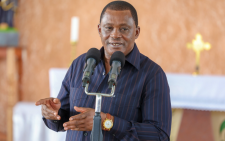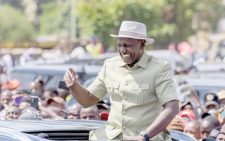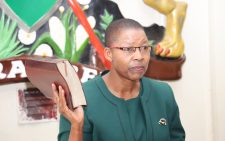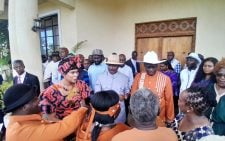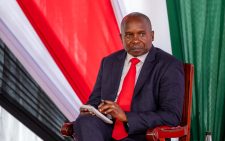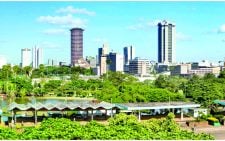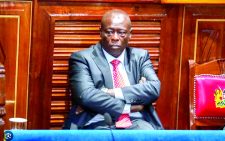Economic recovery post Covid, climate change
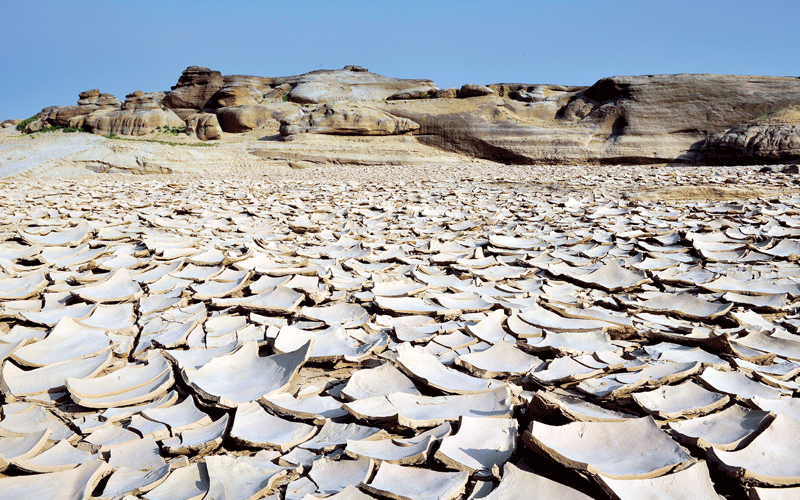
Sylverse Anami
Virtually all major regions of the world have been affected by the twin global disasters of Covid-19 and climate change.
The two pandemics are pushing people and world economies to the edge. Both crises have forced us to change our behaviour, habits, and lifestyles at personal, household, community, and national levels.
With nearly four million people worldwide dead from the virus in the last 14 months, many more face acute socio-economic vulnerability due to the rapidly changing climate.
As we look to rebuild our economies, we have a rare opportunity to ensure we build back better. Business as usual will keep us off the 1.5°C planet-warming target aimed to avoid a catastrophic warming of the earth.
Covid-19 has undermined the poverty reduction progress achieved in the last two decades.
It continues to threaten the state of our economy, including the crisis of sovereign debt, which has far- reaching implications on our fiscal and monetary policy.
Here are a few critical actions we can collectively take to seize this moment and get the world to build back better, and greener.
First, we need to create robust support programmes for Small and Medium Enterprises (SMEs) that can get people back to work and create green jobs.
Though the impacts of climate change are devastating, the possible solutions offer vast opportunities that the private sector can leverage.
Second, we should use all available avenues to address the sovereign and commercial debt burden on Kenya and African countries to free up the fiscal capabilities to finance post-Covid rebuilding.
Addressing macroeconomic and governance challenges to sustain momentum for raising revenue locally is vital to progressing our development needs and building pan-African political solidarity.
Debt relief was one of the major items on the agenda at this summer’s G7 meeting.
Third, since over 60 per cent of our population are young and urbanised, focusing on solutions for women and youth is important, especially with regard to labour markets.
Women and youth are more vulnerable and significantly affected in multiple ways by the pandemic.
There is therefore a need to maximise re-tooling and re-skilling for social and work protections to address their vulnerabilities.
Finally, both national and county parliaments could do more to improve existing policy frameworks to create people-centred budgets.
These budgets should improve the quality of growth and impact of climate action on communities.
These should also seek to build resilient communities that can absorb the shocks and pandemics of the future.
It is not in doubt that Covid-19 has worsened the impact of climate change in Africa.
Even before the onset of the pandemic, much of Africa was suffering from widespread impacts of climate change, such as flooding, cyclones, sea-level rise, displacement of communities, drought, and crop failure.
Covid-19 has exacerbated these climate vulnerabilities by decreasing our ability to adapt and the resources available to fight climate change.
We must do more to effectively respond to these and other emerging development challenges that are unique to our region.
We need to be more innovative in our approach in the delivery of our post-pandemic recovery.
Government interventions to combat the virus have been effective from a public health perspective, but they are not economically sustainable.
Even with government stimulus packages and international financial aid, African economies are unlikely to rebound to pre-Covid levels until 2025.
It is vital that we take immediate steps to ensure we build back better. And as we do so, we should look back on this moment as a turning point for Africa and the world.
As the point in time when we placed resilience and sustainability at the forefront of our personal and national lives. —The author is a former MP for Shinyalu




